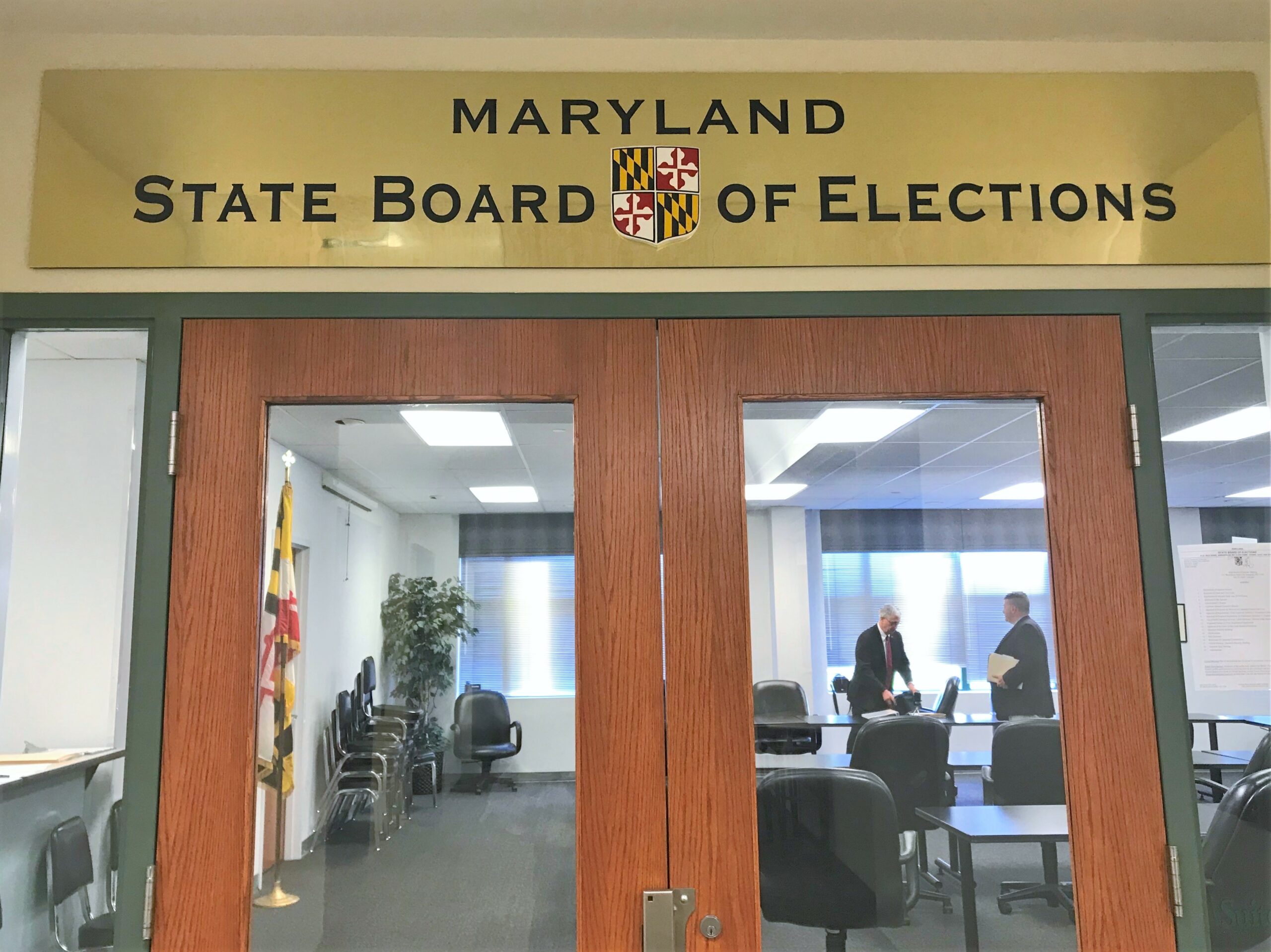Political Notes: Ending a ‘lifetime’ appointment, claims against school board members dismissed, House debates ahead, and a new Stadium Authority chair

State lawmakers took another step in undoing a nearly two-decade old law that makes it difficult to remove Maryland’s top election official.
Sponsors of the bills including Sen. Cheryl Kagan (D-Montgomery) say the bill is not about a single person. One cannot, however, ignore that the changes working their way through the General Assembly undo what had come to be known colloquially as the “Linda Lamone for Life Act.”
Kagan, lead sponsor of Senate Bill 863, said the legislation treats the elections “administrator in the same way that every state employee is and makes it more accountable, more transparent. That’s what the bill will do. And it’s overdue.”
“No one else has that kind of job security. And no one should,” she said.
A spokesperson for the Maryland State Board of Elections declined to comment on the bills.
Current law arose from a 2005 dispute between then-Gov. Robert L. Ehrlich Jr. (R) and then Senate President Thomas V. “Mike” Miller Jr. (D).
Ehrlich sought to use the board, which was controlled by his party by virtue of his election, to remove Lamone.
Miller fought back by passing legislation that limits the ability to remove the director, who, at that time, was Lamone.
Removal requires approval of four of five election board members — the governor’s party controls three seats — and it would not be official until the Senate confirms a replacement.
“It’s not about ousting a person,” said Del. Dana Jones (D-Anne Arundel), lead sponsor of House Bill 899, which is crossfiled with Kagan’s. “It’s about transparency. It’s about an absolutely unworkable appointment system. We did some research on this, and there is no other state that does things like this. So in 15 states, the chief state election official is appointed and the rest of the states are elected by the voters.”
Kagan’s and Jones’ bills effectively would unwind the current law and replace it with a system in which the elections director again serves at the pleasure of the board. A super majority could then hire or fire a director as it saw fit.
The Senate passed Kagan’s bill last week and it is now in the House. Jones’ bill received preliminary approval Tuesday and could get a final vote in the House this week.
Although the bills are similar, the House version contains a key difference which, in effect, establishes a term for the election director. At the end of each four-year term, the board would be required to vote to retain or remove the director.
“I just think that we should have every four years a quick review, that’s all, and if we got the person that we love, and both the Republicans and the Democrats love that person, well then they can keep them but we take a look at it every four years,” said Jones.
The Senate bill does not require the board to take that vote.
To pass such a measure by the last day of the session on April 10, the House and Senate would have to come to an agreement.
“I believe it will be more like the Senate version. I mean, it gets the job done,” said Kagan. “Why do we want to add more details? Let’s just fix the problem. And continue to improve.”
Lamone, at times, has been the focus of ire from Republicans including Ehrlich, former Gov. Larry Hogan and former Lt. Gov. Boyd Rutherford, as well as Democrats, including former Comptroller Peter Franchot.
The 2005 bill made it harder to remove her.
But a series of developments might make it easier to make a change. Not the least of which is a newly sworn-in Gov. Wes Moore (D).
And Miller, who championed the change that protected Lamone, resigned from the Senate in 2020 and died after a battle with cancer less than a month later.
Lawmakers over the years have expressed concerns about Lamone’s resistance to using voting machines that offer a paper trail and what they perceive as her cool reception toward ranked choice voting.
Meanwhile, on Lamone’s watch, the state elections agency has been lauded by a watchdog group for implementing a number of changes during the pandemic including the adoption of wide-scale mail-in voting. The Center for Public Integrity reported in October that the state has reported no cases of voter fraud since 2018 and few harassment or intimidation complaints during the 2020 presidential election.
Prince George’s case dismissed
The Maryland State Board of Education dismissed charges last week that sought to remove three Prince George’s County school board members.
Shayla Adams-Stafford, Kenneth Harris and David Murray will remain on the board after some of their colleagues on the Prince George’s County Board of Education sought to remove them based on a report nearly two years ago from the school board’s Ethics Advisory Panel.
In August, the Maryland Office of the Inspector General for Education issued a report on the advisory’s panel investigation, saying it was “unreliable” and that the panel “failed to provide a complete and fact-based report.”
One month later in September, the county school board voted to accept the inspector general’s report and to rescind a vote they took three months prior to remove the board members.
The state board noted that there is no issue about the tenure of Joshua Thomas because he’s no longer on the board.
Meanwhile, a Maryland administrative judge still hasn’t decided whether to recommend removal of board member Juanita Miller. The judge has until late April to craft a written recommendation to the state Board of Education, following a hearing on the state board’s vote to start a removal process.
Heavy lifting in the House Wednesday
Less than two weeks before a key legislative deadline, the House will take up a slate of bills all of which are expected to draw heavy debate.
Topping the list of bills slated for debate and a preliminary vote are an amendment to the state constitution that enshrines the right to abortion and another bill that creates the licensing, regulatory and tax framework for the state’s nascent recreational marijuana industry.
All of the bills — about a half dozen of them — were delayed a day by Republicans who may attempt to amend some of the legislation. Even without amendments, the bills are expected to generate extended debate.
A third bill permanently extends the earned income tax credit expansions passed last year.
The House and Senate have less than two weeks to send their bills to the opposite chamber to meet the crossover deadline.
New head of the Maryland Stadium Authority
A mentor to Gov. Wes Moore (D) is now the new head of the Maryland Stadium Authority.
The Maryland Senate voted Monday night to confirm to the post Craig Thompson, a lawyer and partner at Venable LLC.
Thompson replaces Tom Kelso, who was politically connected to Gov. Larry Hogan (R) and chaired his 2014 and 2018 gubernatorial campaigns.
Thompson takes the helm at an organization that will have to negotiate a new lease for the Baltimore Orioles. The organization is also involved in building schools in Baltimore City as well as a new minor league stadium in Hagerstown and the Blue Line Corridor Sports and Entertainment District.
Editor’s Note: This story has been corrected to remove a reference to Maryland Stadium Authority lease negotiations with the Baltimore Ravens. That lease was approved by the Board of Public Works earlier this year.





 Creative Commons Attribution
Creative Commons Attribution